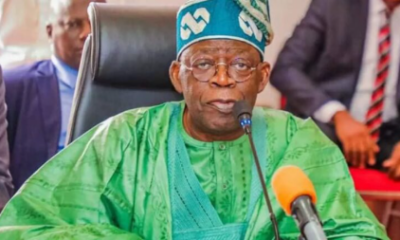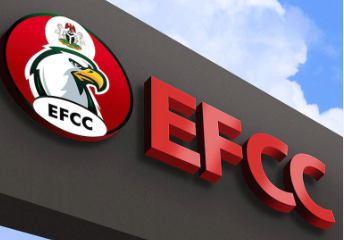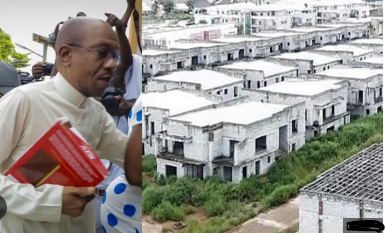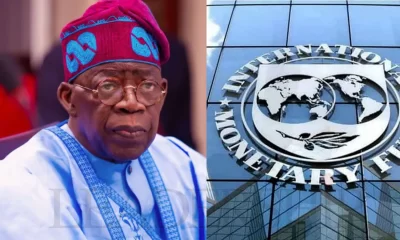Features
CBN mulls fresh capital base for Nigeria’s banks
Published
7 years agoon
By
Editor 1
Emefiele who unveiled his monetary policies for the next five years, specifically targeted price, exchange and inflation rates stability, to buoy economic activities through enhanced lending. He specifically said recapitalisation would also boost the ranking of Nigerian banks in the global financial market.
He said: “In the next five years, we intend to pursue a programme of recapitalising the banking industry so as to position Nigerian banks among the top 500 in the world. Banks will therefore be required to maintain higher level of capital, as well as liquid assets in order to reduce the impact of an economic crisis on the financial system.”
However, financial services operators were quick to deny the possibility of distress in the sector, saying that banks assets base and international ratings indicate that the sector is still stable and viable.
The CBN governor, who was reappointed for a second term of five years, who based his argument for recapitalisation on current economic realities occasioned by high inflation and exchange rates, recalled that it was Governor Chukwuma Soludo in 2004, who did the last recapitalisation moving the capital base from N2 billion to N25 billion.
ALSO READ:CBN provides loans to NYSC members for entrepreneurship
He continued: “I must commend those efforts because they resulted in positioning Nigerian banks not only in Africa but also being among the top banks in the world in terms of capitalisation and also helped to increase and strengthen the banks’ capacity to take on large ticket transactions and those are some of the things we badly need today. If you relate it N25 billion in 2004, exchange rate which was about N100/$, N25 billion is almost about $200 million today if you relate N25 billion at N360; you can see that it is substantially lower than $75 million. So, what we are trying to say is that the capitalisation has weakened quite substantially. There is a need for us to say that it is time to recapitalise Nigerian banks again. It is a policy thrust, which will be discussed at the Committee of Governors meeting, and of course, the framework for recapitalisation of Nigerian banks will be unfolded for the whole world to know.”
Also, as part of the new vision, he said the CBN under his leadership intends to sustain “the pace of consultations with major stakeholders, particularly, with the organised private sector as this would act as a barometer for measuring the progress being made in the implementation of their policies, adding that their assessment of the outcome of the deliberations so far in the past indicated that with concerted efforts, the challenges facing the country are easily surmountable.”
On the collaboration with the public sector, he said: “Working closely with our fiscal authorities, we pledge to target a double digit growth by the next five years and at the CBN, we commit to working assiduously to bringing down inflation to single digit; while accelerating the rate of employment.”
He continued: “We would also strive to continue to sustain a positive interest rate regime to the delight of our important stakeholders. Monetary policy measures embarked upon by the CBN will be geared towards containing inflationary pressures and supporting improved productivity in the agricultural and manufacturing sectors. Working with other stakeholders, we intend to bring down the cost of food items, which have considerable weight in the Consumer Price Index basket. Our ultimate objective is to anchor the public’s inflation expectation at single digits in the medium to long run. We believe a low and stable inflationary environment is essential to the growth of our economy because it will help support long- term planning by individuals and businesses.
It will also help to lower interest rates charged by banks to businesses thereby facilitating improved access to credit, and a corresponding growth in output and employment.”
On exchange rate stability, he also offered the following commitment :” We will continue to operate a managed float exchange rate regime in order to reduce the impact which continuous volatility in the exchange rate could have on our economy. We will support measures that will increase and diversify Nigeria’s exports base and ultimately help in shoring up our reserves. While the dynamics of global trade continue to evolve in advanced economies, Nigeria remains committed to a free trade regime that is mutually beneficial; but, particularly aimed at supporting our domestic industries and creating jobs on a mass scale for Nigerians. We intend to aggressively implement our N500bn facility aimed at supporting the growth of our non-oil exports, which will help to improve non-oil export earnings.”
 | ReplyReply allForward |
You may like


Appeal Court nullifies Emefiele’s asset forfeiture, Orders retrial


Naira gains 1.28% in official market in May amid oil price risks, currency volatility


Tinubu: Diaspora APC chieftain tasks local banks on reforms


Alleged corruption: EFCC witness details wow Emefiele allegedly received $17.1 million in cash


FG to auction 753 housing units forfeited by Ex-CBN Gov. Emefiele in Abuja


Nigeria’s debt rises to N74.38trn, $44.9bn despite IMF loan repayment
Trending

 Health5 days ago
Health5 days agoDeclassified CIA memo explored concealing mind-control drugs in vaccines

 Entertainment7 days ago
Entertainment7 days agoSimi addresses resurfaced 2012 tweets amid online backlash

 Crime5 days ago
Crime5 days agoSenior police officers faces retirement after Disu’s appointment as acting IGP

 Education7 days ago
Education7 days agoPeter Obi urges JAMB to address registration challenges ahead of exams

 Health7 days ago
Health7 days agoNAFDAC issues alert on suspected revalidated SMA Gold infant formula

 Comments and Issues6 days ago
Comments and Issues6 days ago20 Critical Fixes to Save Nigeria’s Democracy from Electoral Fraud

 Football6 days ago
Football6 days agoMartínez ruled out of Everton clash with calf injury

 Latest6 days ago
Latest6 days agoICPC yet to respond to El-Rufai’s bail request as arraignment date looms

